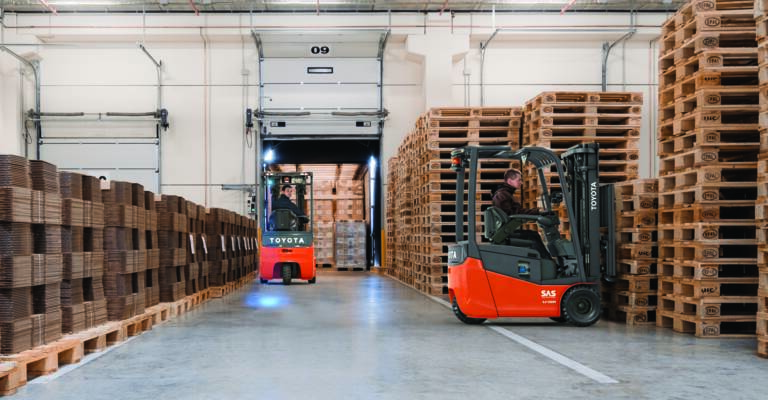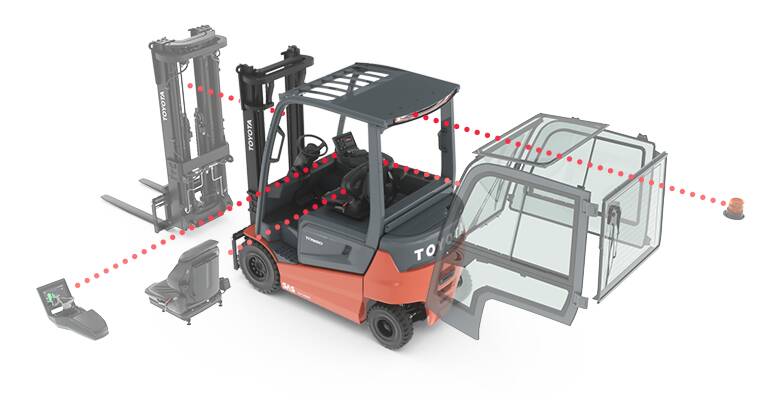How much can you save with an electric forklift?
Learn more

The change from diesel to electric forklifts for Burton Roofing
Burton Roofing Merchants replaced their diesel powered trucks across its 13 UK depots. The switch from a diesel to electric fleet was prompted by concerns over the rising price of fuel following the announcement in 2022 that the Government were planning to prohibit the use of red diesel in forklift trucks.
A fuel cost analysis was undertaken at each of Burton’s 13 sites. Based on the current price of diesel and electricity, the figures showed that over a five-year period, electric trucks represented a considerably more cost-effective option.
What are the benefits of electric counterbalanced trucks?
Electric forklifts are more quiet than their internal combustion counterparts and they have zero emissions. Thanks to their low maintenance requirements, they have a low total cost of ownership while providing excellent ergonomics. Electric trucks also have a low centre of gravity, allowing us to offer you a wide range of load capacities to suit light to heavy-duty applications.
What are the ideal applications for an electric forklift?
Electric forklifts are very versatile and can be used in a wide variety of applications, both indoors and out. So, whether your operation deals in manufacturing, warehousing, distribution, beverage, retail, or something else; you can go electric.
Are Toyota electric trucks designed to work both indoors and outdoors in any weather conditions?
Yes, Toyota electric counterbalanced trucks are made to work inside as well as outside and can be equipped with different kinds of cabins and additional protection to suit outdoor conditions. These cabins can combat all environmental conditions: hot, cold, rainy…
What are the different battery options?
Toyota electric forklifts have either lead-acid or lithium-ion batteries depending on your needs. They are also available with fuel cell energy as an alternative electric power source.
Are electric forklifts more cost-effective than gas or diesel forklifts?
The initial purchase price of internal combustion trucks is lower than that of electric forklifts. The latter are, however, more cost-effective in the long run, as they have fewer moving parts and therefore don’t need much maintenance. Additionally, charging costs are also much lower than refuelling costs (gas or diesel).
Build your CB

Make it your own
Build your next counterbalanced truck
- Build and visualise in 3D
- Get the features you want
- Tailor it to your business
